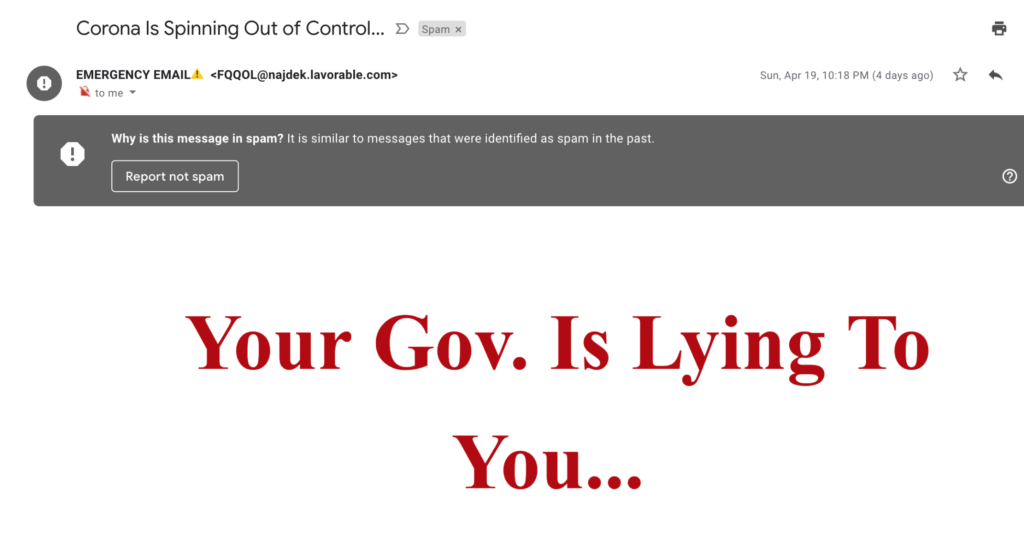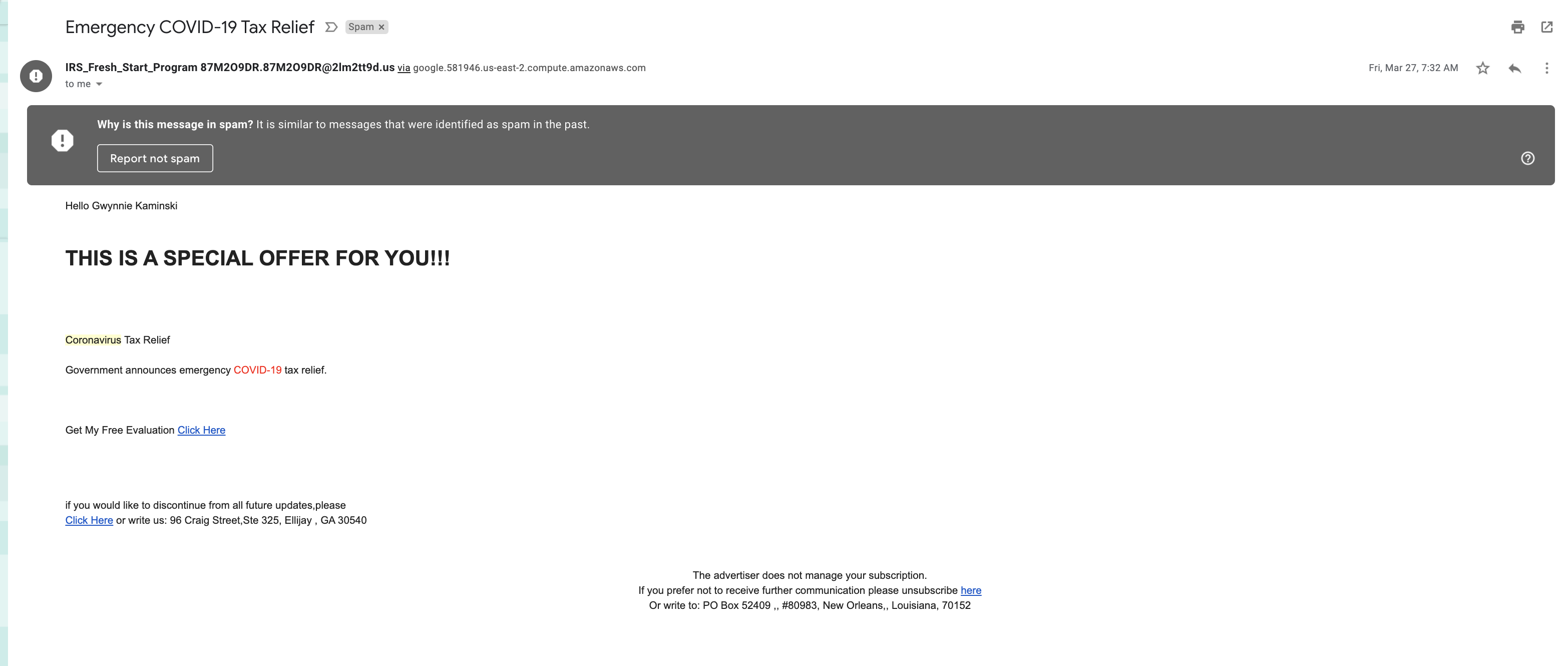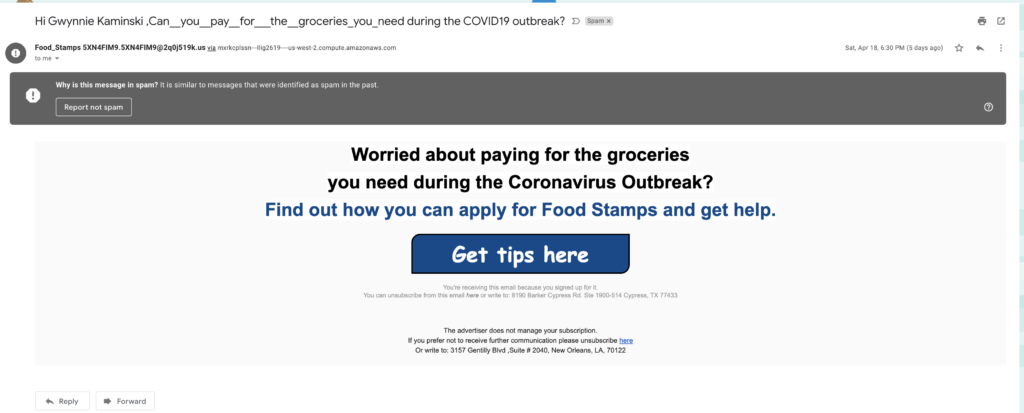Millions of people’s lives and livelihoods have been turned upside down by the novel coronavirus pandemic, and in the latest coronavirus news, scammers are taking advantage by capitalizing on people’s anxieties and fears during this stressful time. Here are some of the most common coronavirus scams you should know about:
- COVID-19 Medicare Scams
- Coronavirus-Related Robocalls
- Relief Payment Scams
- Coronavirus Phishing Scams
Once you learn about the various types of coronavirus scams out there, you’ll want to read our tips on how to protect yourself against coronavirus scams.
COVID-19 Medicare Scams
Scammers are currently calling individuals with Medicare and offering “Coronavirus packages” or “COVID-19 kits,” as well as Medicare benefits related to the pandemic. Beware: on these robocalls, they will ask you to verify your personal information, such as your Medicare numbers, Social Security number, or bank account details. Don’t give them any of your information, even if they claim to be a Medicare representative. Hang up right away and report it to the FTC at ftc.gov/complaint. You can listen to what a Medicare scam phone call sounds like here.
Coronavirus-Related Robocalls
A common theme amongst coronavirus robocalls is people offering you things that don’t even exist—from coronavirus cures to in-home testing kits, these scammers are trying to get personal information out of you, and the unfortunate truth is that many scared, vulnerable individuals fall for these fraudulent calls. There have also been reports about callers offering HVAC cleaning services that they claim will protect families from COVID-19.
Relief Payment Scams
Scammers have also been calling people claiming to be an employee from government agencies, like the Social Security Administration, Census, USCIS, FDIC, and IRS. Typically, these fraudulent government calls will tell you that you’ve been approved for relief payments or cash grants resulting from the coronavirus pandemic. And as enticing as these messages may be, you’ll only wind up losing money if you give them your personal information.
When in doubt, a call is a scam if someone is asking you to provide personal information or to pay with a gift card, wire money, pay with cryptocurrency, or send cash. You can stay up-to-date on the latest fake government scams at ftc.gov/imposters
Coronavirus Phishing Scams
Not every scam is via phone call—an overwhelming amount of phishing scams related to COVID-19 have been reported. Scammers, posing as representatives of legitimate organizations, send phishing emails claiming to have the latest information or statistics about the coronavirus pandemic. All you have to do, according to them, is click on the attachment or link to learn more about COVID-19—do not, under any circumstances, do this! These attachments and links will download malware onto your device. This malware may allow scammers to access your financial or personal information, as well as take control of your device. The most common types of phishing scams include medical advice emails, work policy messages, and fake CDC alerts. Delete all of these emails immediately! See a few examples below of the type of coronavirus scams we are talking about.



Medical Advice Emails
Cybercriminals may send you an email containing health advice intended to help you protect yourself from contracting the coronavirus. Often, these emails claim to be from medical experts and they often try to bait you into clicking on the link by telling you that this small tip will keep you safe.
Work Policy Messages
Scammers have begun targeting people’s work emails as well as their personal emails. Although these messages may sound fairly legitimate since they include your company’s name, encourage safety precautions, and are presumably sent by Human Resources, do not click on any links. If you aren’t sure if a work policy email is real or not, reach out to your boss or the human resources department at your place of work.
Fake CDC Alerts
Many scammers are sending phishing emails intended to trick recipients into believing they’re from agencies like the U.S. Centers for Disease Control. The email is typically geotargeted and will encourage you to click on a link to learn more about coronavirus cases in your city or county.
How to Protect Yourself Against Coronavirus Scams
The bottom line is never, ever give out any of your personal or financial information to callers and don’t click on links or ads about coronavirus. Beyond that, here are some helpful tips to help your protect yourself from scammers:
- Hang up, immediately.
- Do not under any circumstances provide any personal information, such as your SSN, credit card number, bank account information, etc.
- List your phone number with the Do Not Call registry.
- File a complaint with the FCC and FTC.
- Check to see if your phone carrier offers any extra paid spam protection services.
- Avoid answering any questions, especially yes or no questions.
- If a caller claims to represent a government agency or organization, hang up and call that organization’s number.
- Delete the phishing email immediately and block the sender.
- Avoid clicking on any links or coronavirus ads.
- Be on the lookout for spelling and grammatical errors; this is often a sign of a fraudulent email.
- Check for generic greetings; phishing emails likely will not use your name.
- Don’t fall for emails that urge you to act now; scammers tend to exploit people by creating a sense of urgency.
- If you suspect you’re being targeted by coronavirus scammers, contact the National Center for Disaster Fraud Hotline at [email protected].














